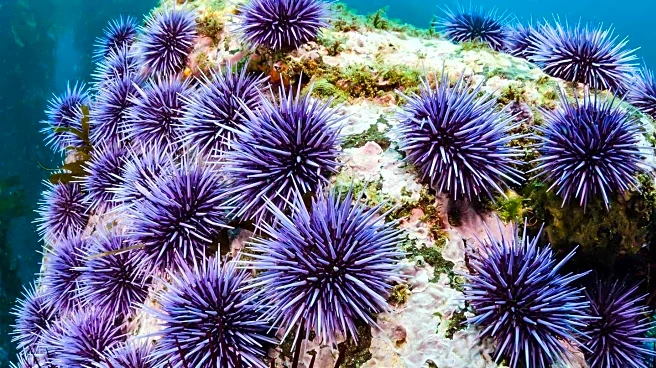What's Happening?
Researchers have identified a compound named Demethylmycemycin A, derived from the marine organism Dactylosporangium sp. OK1079, which exhibits potential in suppressing prostate cancer. The compound targets the BRK-FAK-STAT3 axis, a pathway involved in cancer cell
proliferation and survival. This discovery adds to the growing body of research focused on marine-derived substances for cancer treatment, highlighting the unique chemical properties found in marine environments that could lead to novel therapeutic options.
Why It's Important?
The identification of Demethylmycemycin A as a potential prostate cancer treatment is significant due to the ongoing need for effective therapies against this common cancer. Prostate cancer remains a leading cause of cancer-related deaths among men, and new treatments are crucial for improving patient outcomes. The compound's ability to target specific cancer pathways suggests it could be developed into a targeted therapy, potentially reducing side effects compared to conventional treatments. This research underscores the importance of exploring marine biodiversity for medical advancements.
What's Next?
Further research and clinical trials will be necessary to determine the efficacy and safety of Demethylmycemycin A in humans. Researchers will likely focus on optimizing the compound's formulation and delivery methods to enhance its therapeutic potential. Collaboration with pharmaceutical companies could accelerate the development process, bringing this promising treatment closer to clinical application. Additionally, continued exploration of marine organisms may uncover more compounds with similar or complementary effects.
Beyond the Headlines
The discovery of Demethylmycemycin A highlights the ethical and environmental considerations of marine bioprospecting. Sustainable practices must be employed to ensure that the extraction of marine resources does not harm ecosystems. Furthermore, the potential commercialization of marine-derived compounds raises questions about intellectual property rights and benefit-sharing with countries that possess rich marine biodiversity.

















